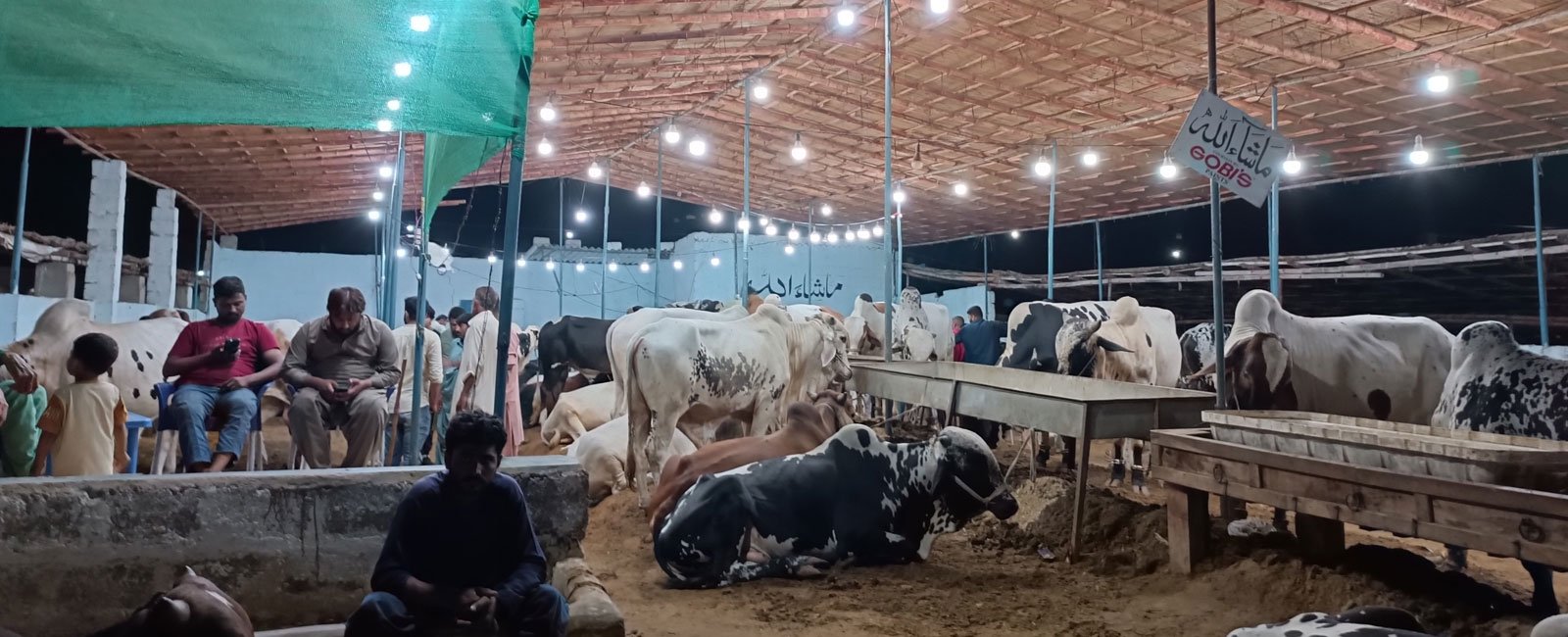How Eid ul Adha puts meat on bare bones of Pakistan’s economy

Eid ul Adha, commonly known as Bakra (goat) Eid, not only directly impacts millions of malnourished people by providing them with meat; however, but also generates economic activities in so many upstream and downstream industries that benefit the stakeholders the whole year round.
Last year, sacrificial animals alone engendered an economic activity worth Rs329 billion.
The animal sacrifices on the occasion of Eid ul Adha — a religious festival observed by Muslims all over the world as it also marks the month in which millions of Muslims converge on Makkah to perform Hajj create many economic opportunities at all levels of the economy.
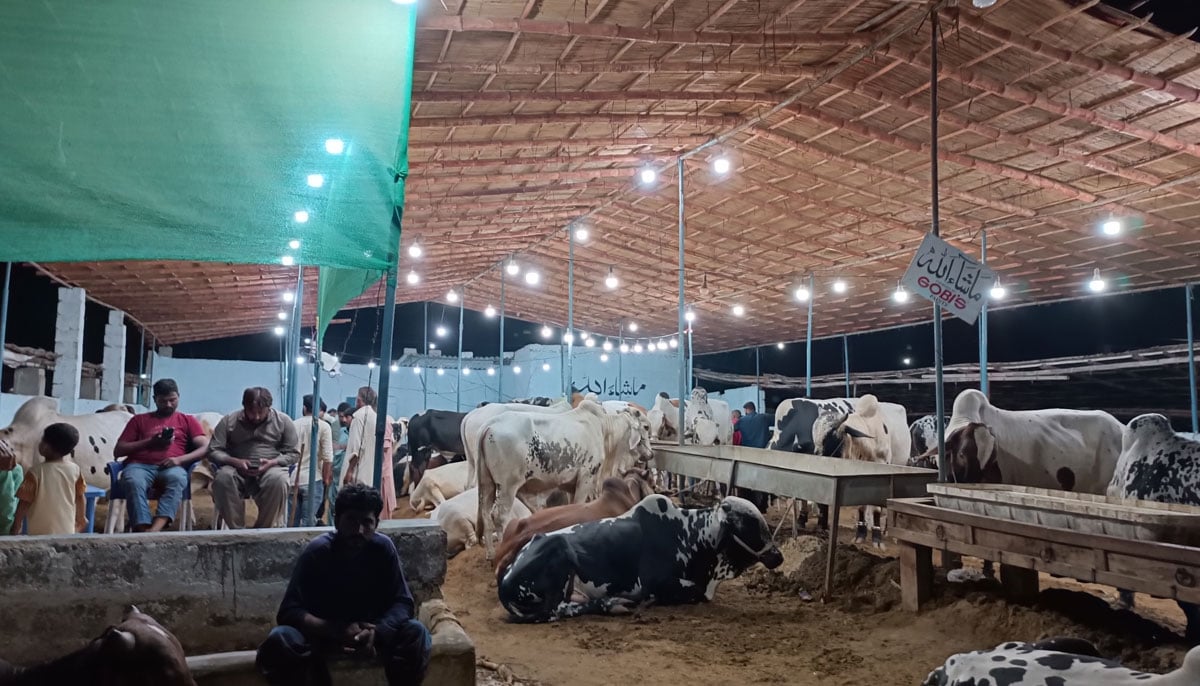
As the festival draws near, temporary sacrificial animal markets pop up across Karachi and the rest of the country. Apart from this, submarkets selling green and dry fodders and other edibles cattle eat, knick-knacks, and ornaments like beads, belled anklets, shiny and colourful collars, tiara-like feathered head-dresses, bells, decorated leashes, etc are also established alongside the main animal market.
Eid ul Adha also helps other sections of the overall struggling market economy. This includes include transport — vendors who haul animals from the market to the buyers' homes; sales of electronics especially deep-freezers; butchering and barbecuing paraphernalia including knives, cleavers, meat chopping blocks, coals, skewers, grills etc; food industry also becomes active as tons of spices, sauces, soft drinks and other things to help cook on the big day and many more.
Hospitals also receive thousands of cases of butchering injuries and severe indigestion. Animal waste (guts, bones, etc) and leather processing industries also benefited from such a huge supply of raw material on this occasion.
The authorities who grant permission to these out-of-town merchants and traders charge them a fortune. From rent for providing shelter and a marketplace to cattle traders to market entry fees and cost of fodder to the accessories and animal transporters and butchers, Eid ul Adha is an economy worth billions.
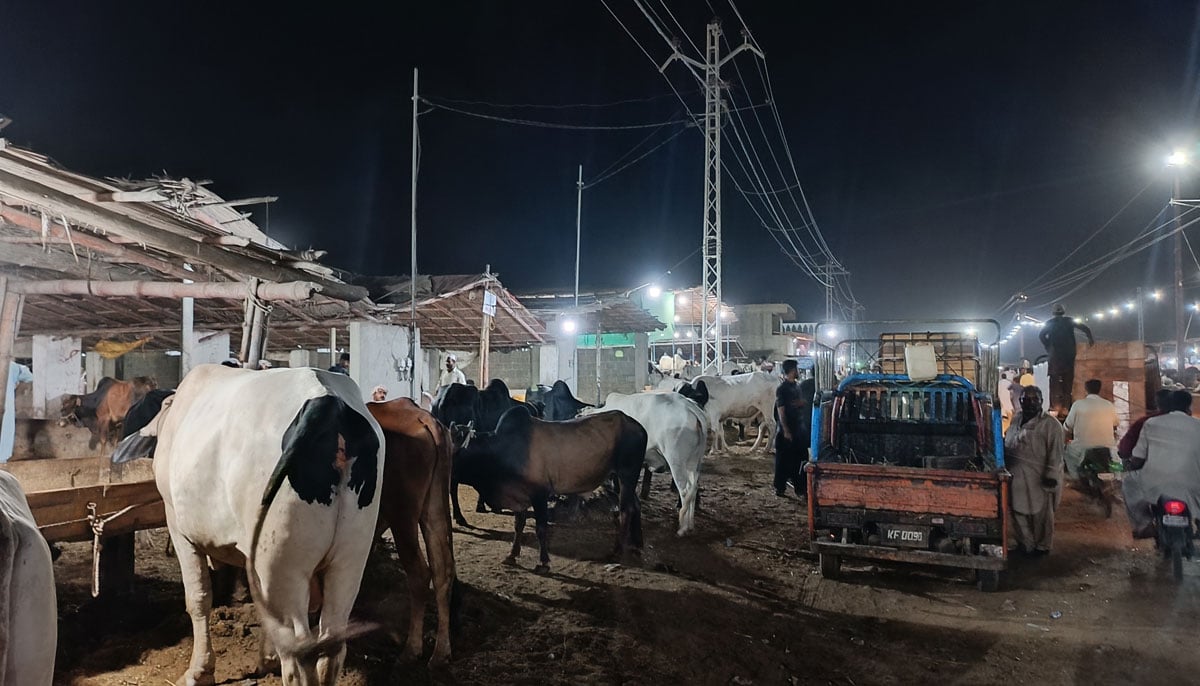
Ilyas Khan, a cattle contractor selling his sacrificial animals as a seasonal business, told Geo.tv that he had acquired the place in Yousuf Goth mandi at Hub River Road on a one-month contract, which would expire on the third day of Eid.
"We acquired the land for Rs7.5 lacs and after the contract ends, those who still want to keep their animals here to wait for them to be sold here pay the administration a fixed one-time amount of Rs7,000 per animal," he said, adding that the amount was exclusive of what people pay at the entrance of the mandi — which was claimed to be the "third largest registered mandi of Karachi".
The contractor said that the administration provides them electricity, water, and security while the animal fodder was the responsibility of the owners of the animals.
Animal shelter manager Mohammad Rafiq — who himself is a seller and has been in the business for over a decade — told the publication that the rent of this place, where he was looking after cattle shelter this time, was around Rs600,000 -700,000 per annum.
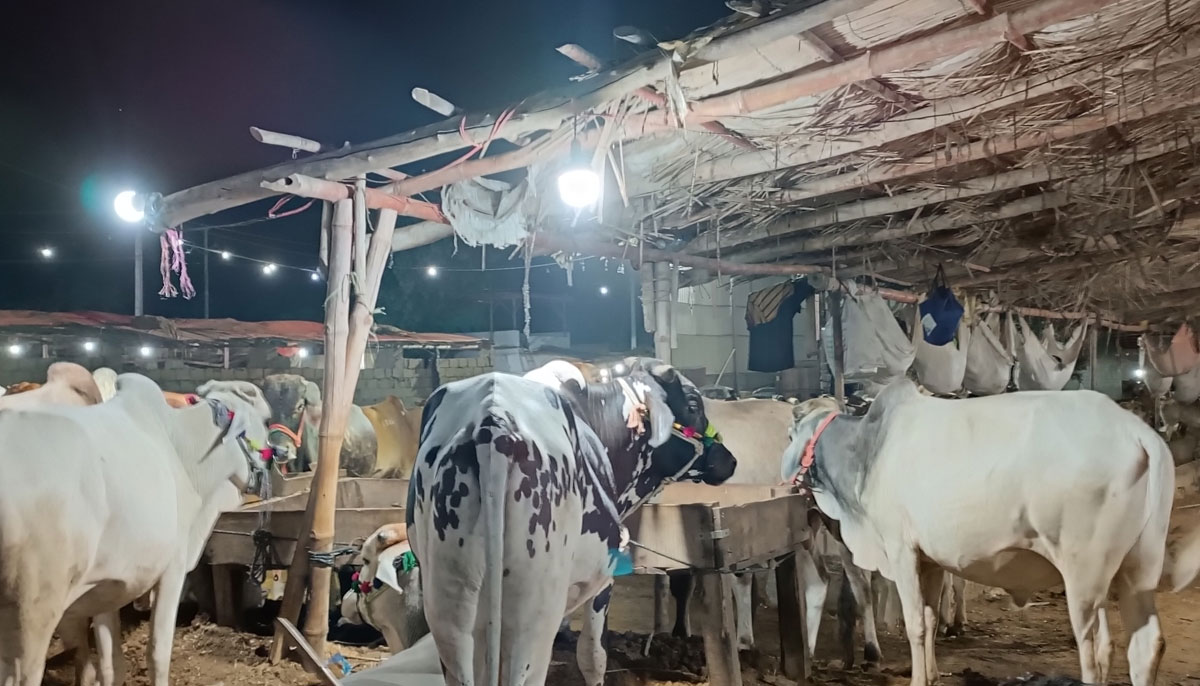
Rafiq revealed that cattle owners have to buy everything from water to fodder and electricity.
He revealed that a water tanker costs Rs3,000-4,000 and the number of tankers needed depends on the consumption as it was consumed by the animals and also used for their cleaning etc.
"We buy animals from Punjab and the transportation cost per animal is Rs6,000-7,000," added Rafiq while mentioning that they also had to pay Rs2,000 per animal as entry fees.
Rafiq stated: "The administration of the mandi provides basic facilities such as water and electricity against a fixed amount."
According to rough calculations, one average-sized animal eats Rs15,000 worth of fodder per month approximately. While one thinks these are the rates for big animals — like camels and bulls — the situation is somewhat similar for sellers who bring small animals like goats and sheep.
Rashid Ali, a goat seller at the mandi, said that he paid an entry fee of Rs1,000 per goat and then also paid the rent of Rs40,000 for the shelter for ten days until the third day of Eid.
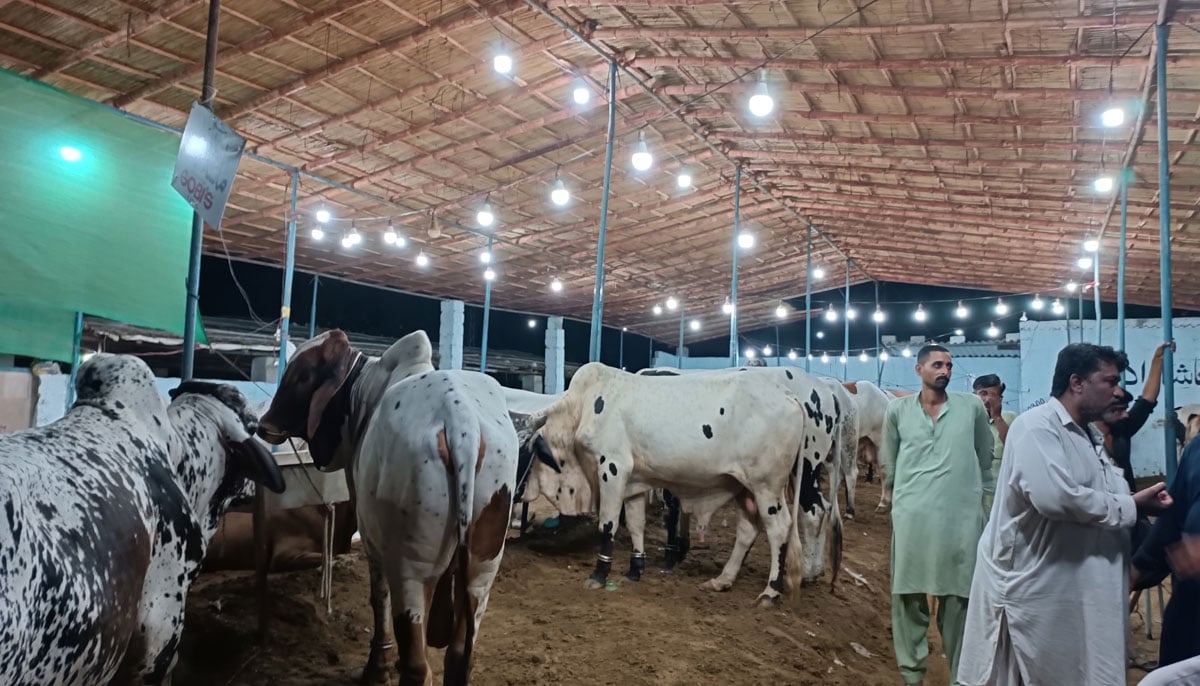
"Only the electricity is provided by the owner. All other expenses are borne by us including the transportation cost,” he said, revealing that he brought his goats from Nawabshah and per truck charges were around Rs25,000, which can carry 30 small goats or 20 big ones.
The vendor further revealed that the administration charged Rs200/vehicle used for animal transport under the head of so-called parking."
Commenting on the turnout of the purchasers, he claimed that people were buying more this year despite the higher rates. Ali said: "Due to rains last year, people suffered severe losses but this time the mandi is going well until the rain comes in and if it rained now, it will be flooded."
He stated that the weather conditions and their repercussions force people to sell their animals without keeping profits and "this is how the rates fall."
Ali also noted: "Other than rain there is no chance that the rates will come down until Eid." According to Ali, the price of the cheapest goat he has sold so far was Rs25,000, while the most expensive was Rs117,000.
Transportation cost soars
Transport is another major allied sector which benefits from the peak in the seasonal demand during which the logistics services are acquired by thousands of people to move sacrificial animals from cattle markets.
Alam Khan, a cattle contractor, told Geo.tv that he brought 31 animals from Punjab to Karachi's Yousuf Goth Mandi. He revealed that Rs175,000 were charged by a truck driver for animals' transport on their way to Karachi and had to bribe border officials to get clearance.
"They demand Rs500-1,000 per vehicle. Moreover, Rs300 is charged per animal at Nooriabad — which takes the average cost of transportation per big animal to Rs6,000-7,000 apart from paying Rs2,000 for entering the Mandi," he claimed.
He complained that the administration of the mandi was "only concerned about charging money" and didn't bother about the quality of services.
"This mandi [Yousuf Goth Mandi] is registered and there are proper tenders issued for the administration and other matters but due to political involvement and embezzlement, they [authorities] favour their own people," Alam claimed.
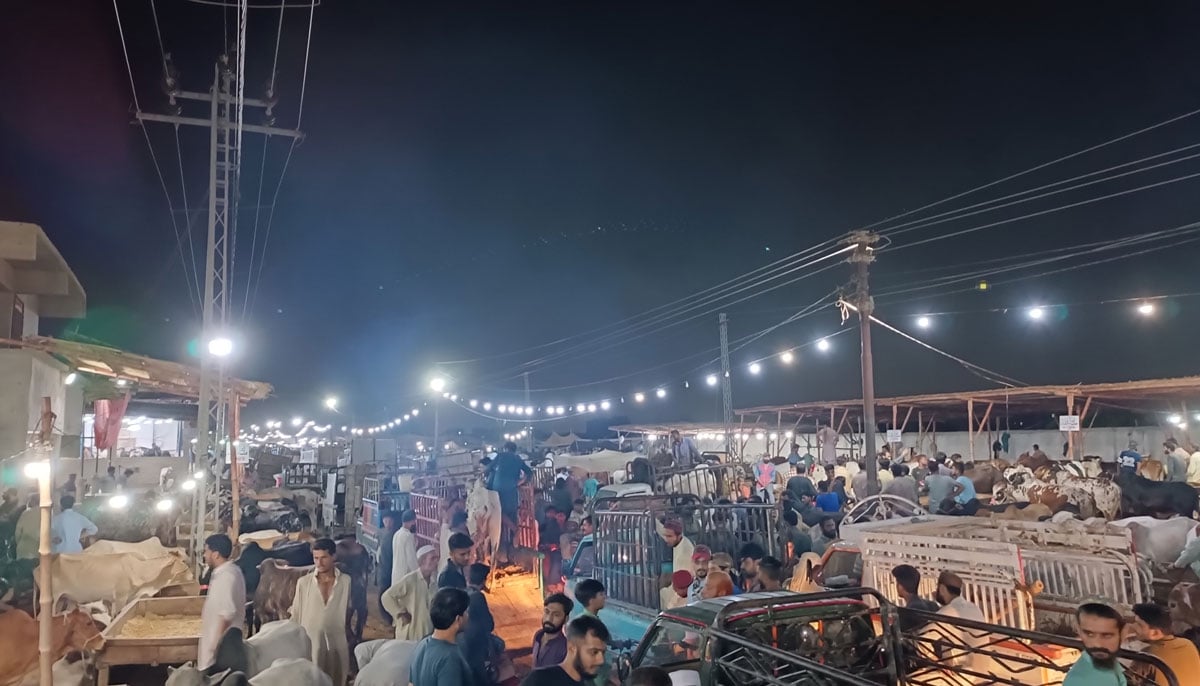
Shedding light on animal health regulations, he said that there was no proper mechanism for checking whether the sacrificial animals were vaccinated or not.
Buyers, whom Geo.tv spoke at the market, complained that they are already burdened by the soaring inflation but this "increased" cost of transportation has made it difficult for them to fulfil their religious obligation.
Khayal Wazir, a pickup driver, said whenever they enter the mandi, no matter how many times in a day, they have to pay Rs200 fee.
"The transportation charges have dropped compared to last two years despite a massive hike in the price of petroleum products because there’s less demand as people are trying to save money," Wazir said, adding that "sometimes the owners agree to what people offer keeping low-profit margin."
"Our rates depend on the distance. There is no fixed rate. However, the minimum charges are Rs1,000 as the vehicle owners have to pay Rs200 every time as entry fee."
Wazir also lamented over inappropriate arrangements at the market.
Decorative material and meat-chopping block
When people purchase sacrificial animals they also are concerned about their food and other stuff — including butcher’s expenses, etc.
Mohammad Dawood, who was seen setting up his small stall on the Hub River Road, selling mats, knives, and wooden blocks (wooded pieces used for chopping meat and other decorative material), said he has brought goods worth Rs150,000-200,000 to sell.
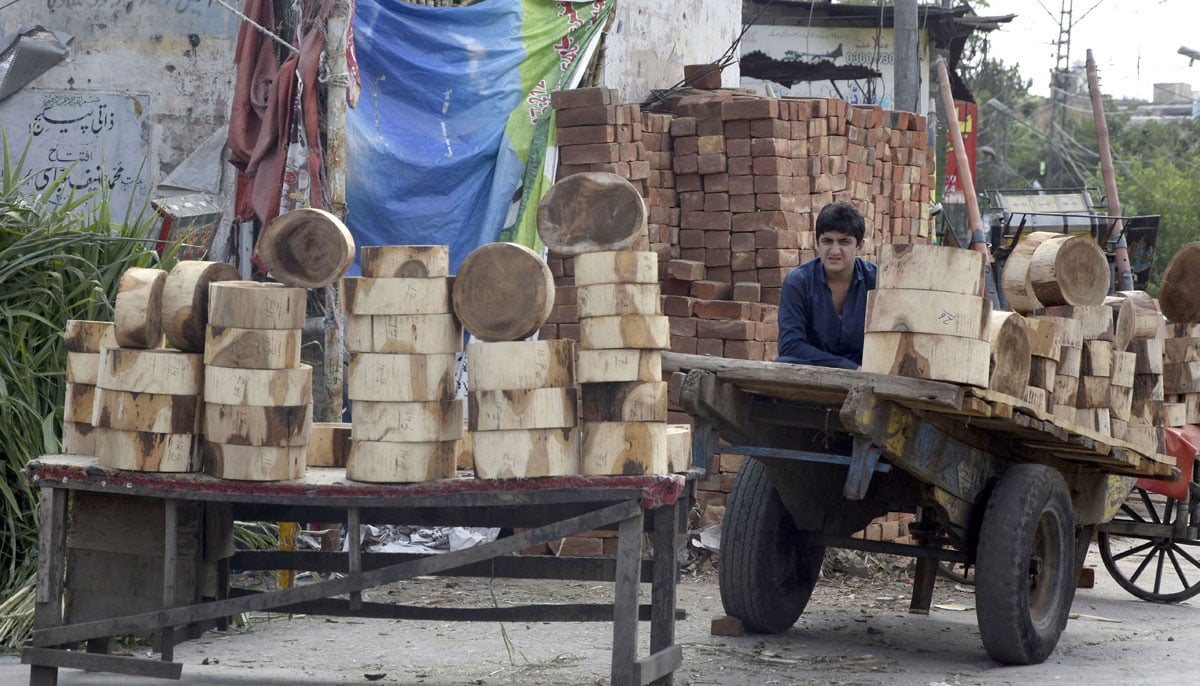
"I spent Rs6,000-7,000 transporting all the material."
He has been in this business for more than the past 20 years and sets up his makeshift stall at the same place every year ahead of Eid.
"We are willing to take permission from the authority, but we don't know who the authority here is, so we just place our items here and start the business," he said.
Summing it up, despite the myriad of challenges faced, the humungous size of Eid ul Adha economy prompts us to reflect on how to take the bull of issues by the horns and foster the fair distribution of wealth in marginalised regions where this whole sector originates from.
If regulations are enforced, this unique economy-driving festivity, where temporary employment opportunities worth billions of rupees are generated can supercharge the economy in diverse sectors and rural/urban communities associated with them.
The economic impact of Eid ul Adha in fortifying Pakistan's economy is just significant; however, it also underscores the importance of efficient management and enhancements across various areas to ensure inclusive and thriving growth.
Eid ul Adha feeds Pakistan's economy like no other national event and if an enabling environment is provided to all the stakeholders, the dividends of this business activity can be reaped the whole year round.



